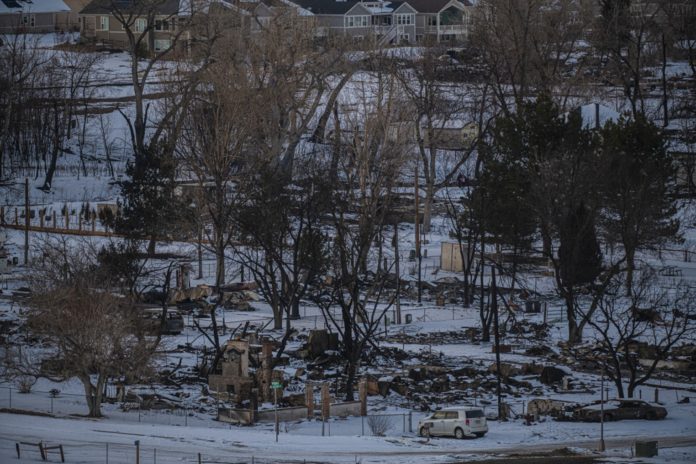The Kupfners lost their business, a liquor store, in the fire, and hope to win damages from Xcel. On July 1, Xcel and the Colorado entity owned by Xcel, Public Service Company of Colorado, filed motions to dismiss the lawsuit; James Avery of Denver Injury Law, the attorney for the plaintiffs (who were anonymous when the case was originally filed), submitted the couple’s response on July 26.
He doesn’t see the motions to dismiss going anywhere. “There’s probably closer to a zero than a one percent chance,” Avery says.
In Xcel’s motion, it claims to be merely a holding company that does not conduct business in Colorado, passing the buck to Public Service Company of Colorado by arguing that Xcel is out of the court’s jurisdiction. In his response, Avery notes that Xcel is registered to do business in Colorado and has won lawsuits in the state before, indicating that it is indeed within the jurisdiction.
In Public Service Company of Colorado’s motion to dismiss, the company argues that there is insufficient evidence to support the claim that it was responsible for the fire. According to the lawsuit, witnesses observed sparks and the ignition of a fire in the vicinity of Xcel power lines, and at least one person captured it on video; Avery argues that the company has an obligation to act responsibly but didn’t, causing the fire to start or at least aiding in its spread.
Public Service Company of Colorado disputes the witnesses’ accounts. “Rather, that video…shows that the Marshall Fire was already ablaze, of massive size, and originating from a different location in the distance when the momentary sparking was witnessed,” its motion to dismiss reads.
Even if other causes contributed to the blaze, Avery says, the company should be held at least partially responsible. The lawsuit claims that at one point, wood chips that Public Service Company of Colorado piled at the edge of Superior caught fire, adding fuel to the flames.
Public Service Company of Colorado also argues that because it is regulated by the Public Utilities Commission, any lawsuit could only allege that it breached the standards set forth by the PUC, exempting the company from accusations outside the bounds of what is already regulated.
But Avery dismisses this argument, too. “Such a requirement would effectively preclude all state law causes of action against utility defendants, regardless of the conduct at issue or the existence of any governing tariff, in violation of established case law,” his response reads.
Avery argues that the motions to dismiss are designed to intimidate others who may be considering suing Xcel or Public Service Company of Colorado in connection with the fire.
“There’s a saying that you throw enough mud on the wall, sometimes some of it will stick,” Avery says. “That’s all this motion is for.”
Credit: Source link































